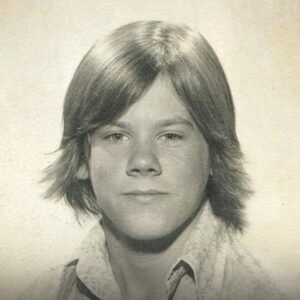In going into Netflix’s Avatar: The Last Airbender, my hopes weren’t very high. This wasn’t only influenced by the terrible 2012 film, but the multiple preliminary comments from screenwriter Albert Kim, who shared how they were changing the storyline.
In some of his interviews he expressed certain plot changes which, at first, I didn’t agree with. For example, Aang’s stronger drive to be the Avatar, as well as more inclusion of Azula and Fire Lord Ozai in the first season.
But as I realised when watching, one can view and enjoy the animated series and the live-action series separately. In keeping an open mind when watching, and treating it almost as something new, it became a much more enjoyable experience where I wasn’t wasting my time trying to compare it to the original.
Although it was interesting to see where it differed, it didn’t necessarily make the series bad. That’s not to say I liked all the changes it made, but it was still fun to watch and see my favourite show come to life.
With each episode being one hour long, and there being eight episodes in this season, there’s a lot to unpack, so let’s get started!
Episode 1: Aang

In all honesty, this was my least favourite episode. This new stress on Aang’s role as the Avatar in a much more instantly intense way seemed like it was just forcing the narrative they wanted. Yet as I continued to watch, the mature themes of the Air Nomad genocide made me realise this is a more serious and driven story than the original.
It was sweet seeing some more of Aang’s life at the temples with Monk Gyatso and seeing a live-action Appa that looks just as cute as I could have wished for.
The VFXs were incredible if we think back to how shocking they were in the live-action film. The way the elements are controlled and moved, as well as the strange beasts and mythical elements that come into play, was fascinating.
Seeing Katara and Sokka, portrayed by Kiawentiio and Ian Ousley, showed perfectly their sarcastic yet mature sibling relationship. Sokka’s sarcasm definitely added a more light-hearted tone to the otherwise seriousness of the series.
Our first interaction with Zuko and Iroh was nothing short of what we expected; from Zuko’s arrogance to Iroh’s soothing nature. Dallas Liu and Paul Sun-Hyung Lee were personal favourites for this show, as they captured the essence of these characters wonderfully and really brought them to life.
Something I wasn’t a fan of, however, was some of the forced jokes or lines to call back to the original. When Kanna, (also known as Gran-Gran by Casey Camp-Horinek), goes on to repeat the iconic opening monologue mid-episode, it feels forced and a bit cheap.
This first episode, I found, also lacked the depth and budding relationship between Katara and Aang before she decides to force Sokka to help her save him. And in deciding to continue travelling with him, it felt strange that they, particularly Sokka, would leave their vulnerable village behind for someone they didn’t really know yet.
Next is the part I think I disagree with the most, even though it isn’t that harsh of a change. When Iroh and Aang converse once Aang is initially captured by Zuko. This insightful conversation kind of demeans Iroh’s better nature.
I mean this in the sense that most viewers already know that Iroh is one of the good ones, but having him openly converse and share his thoughts about the Fire Nation with Aang within the first episode made it seem a bit rushed and reaching for his characters better side before understanding the complexities of his character. Iroh’s main goal was to help and accompany Zuko, which included capturing the Avatar, so this conversation just felt out of place and unneeded.
The avatar state was incredible to see, the true power of the Avatar and the fear it incites in others was so compelling to watch as Aang dealt with the death of Gyatso and his people. As far as first episodes go, it definitely kickstarted the story with a blast and look into the wider world of Avatar.
Episode 2: Warriors

This episode is where we really start to see the changes made to the narrative in the live-action. Katara is gifted the waterbending scroll from Kanna, the trio decides to visit Kyoshi Island so Aang can connect with Avatar Kyoshi and the introduction of Suki’s mother, Mayor Yukari.
Another interesting change was Aang’s lack of desire to learn water bending. Although he didn’t truly get to this until the Northern Water Tribe, it was strange seeing how reluctant he was.
Suki and Sokka’s dynamic was fun to watch, if not awkward, as Sokka attempted to flirt and Suki simply attempted to socialise with someone outside of the island. Ken Leung’s performance as General Zhao was remarkable, he really cleverly showed how Zhao is cunning and manipulative.
What really made this episode stand out was Yvonne Chapman as Avatar Kyoshi, the ruthless Earth Avatar that came two cycles before Aang. The fight scenes are compelling to watch, with the world on the line and the importance of Aang and his duties, adding a tension the original series didn’t instantly have.
Seeing Avatar Kyoshi take over Aang’s body and reign down on the Fire Nation as they attack the island was beyond absorbing, I was unable to look away as she showed off the power of the Avatar and protected her island.






